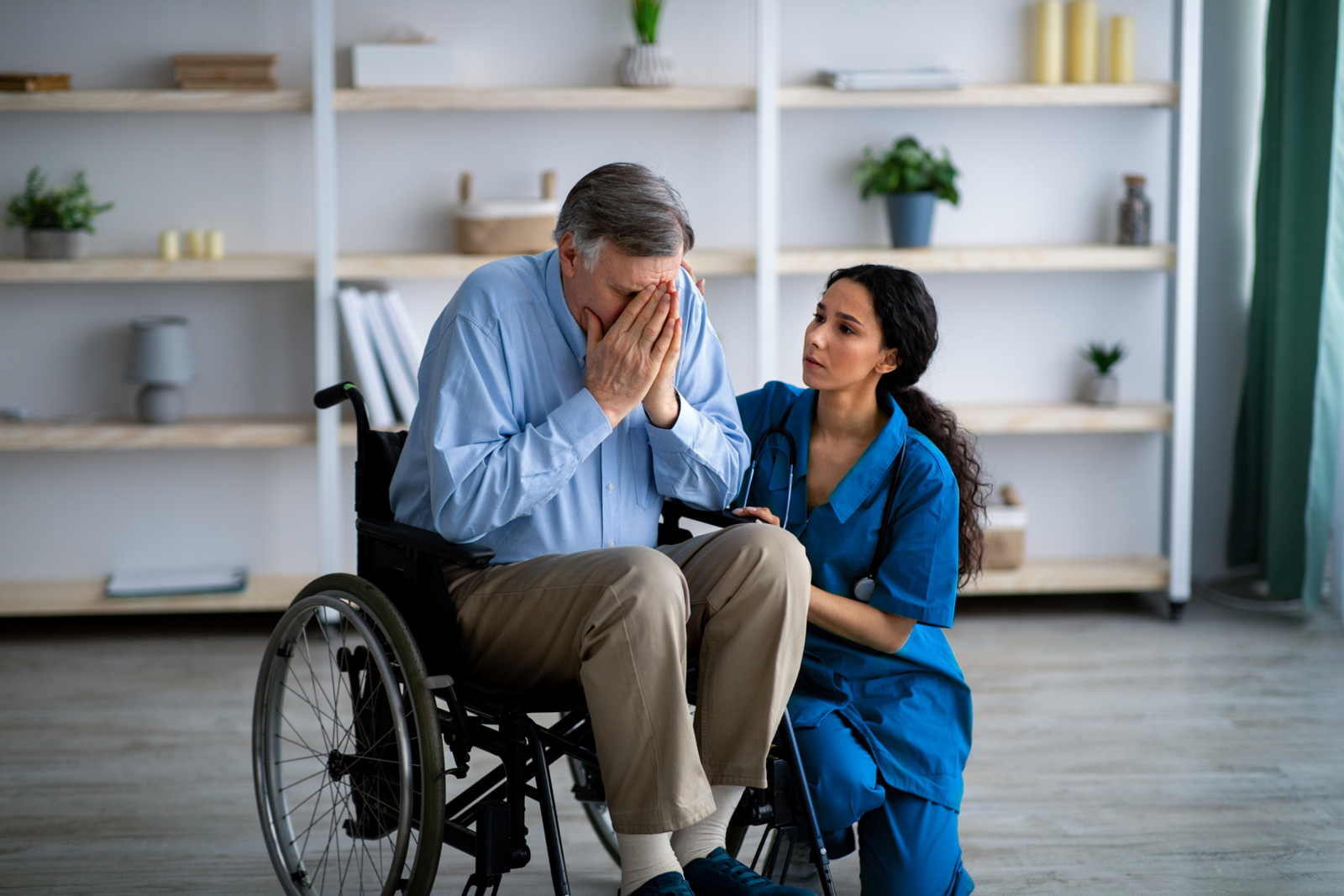
Signs of Elder Abuse
Abuse can happen to anyone at any age. For elders, it may be by a loved one, a caregiver, or a stranger, and it may occur in the home, at a relative’s home, or in an assisted living facility. There are several types of abuse, including physical, emotional, neglect, financial, sexual,and abandonment. You may have ensured your elderly loved one has the best Medicare insurance, United Health Care, ssa medicare, aarp plans for seniors, living arrangements, and so on, but it is not enough to protect from abuse—make sure you know who is in their life and that you can trust them. It can be challenging to recognize when an elder is being abused, especially if they suffer from dementia, so it’s especially important to be aware of the signs of elder abuse, which we outline below:
1. They seem depressed, confused, or withdrawn
If an elderly individual has a significant change in mood or is demonstrating strange behavior, such as seeming depressed, confused, withdrawn, acting agitated or violent, or displaying signs of trauma like rocking back and forth, this can be a sign that abuse is occuring. Unfortunately, perpetrators often take advantage of the vulnerability of an older individual and these changes in mood can be a sign of any kind of abuse.
2. They have unexplained bruises, burns, or scars
Unexplained bruises, burns, cuts, scars, or pressure marks may be a sign of physical abuse, and the term identifies any form of violence or harm that leaves an older person significantly injured. Such injuries may require months of recovery or could even contribute to an elder’s death. It’s essential that you keep an eye out for any signs of physical abuse and if you notice anything, report it to authorities immediately.
3. They appear dirty, underfed, dehydrated, etc.
If your elderly loved one appears dirty, underfed, dehydrated, over- or under-medicated, or not receiving needed care for medical problems, this is a sign of neglect. Perhaps they have unwashed hair, dirty clothes, or poor dental hygiene, which are essential hygiene needs—a caregiver neglecting to help with these tasks, especially if the elderly individual is unable to do it themselves, is unacceptable and is a form of abuse.
4. They have bed sores
Bed sores, especially if untreated, can be a sign of neglect. These sores are skin ulcers that can go down to the bone and be extremely painful. Bed sores typically result from immobility or prolonged pressure of the body to a surface, where the pressure cuts off blood supply to the tissue and the sore forms. More often than not bed sores are due to inadequate cleaning or changing, which needs to be addressed immediately to keep your elderly loved one safe. If you notice bed sores, it is more than likely time to make a change in their caregiving situation.
5. There are recent changes in their banking or spending habits
If there are recent changes in an elderly person’s banking or spending habits, it can be a sign of financial abuse and exploitation. This can range from things like misuse of an elderly person’s funds, forging checks, taking retirement benefits, using credit cards or bank accounts without permission, changing names on a will, embezzlement, and so on. Be sure to ask the right questions and ensure there is not any unusual activity in their accounts.
If you notice any of these signs in an elderly individual, be sure to speak to them when you two are alone, tell them you’re worried something is wrong, and offer to take them to get help. You should report what you know to authorities immediately—many elders are embarrassed to report mistreatment, so it’s essential that you step in to address any issues.


